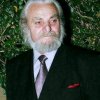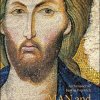Nikola Tesla died 71 years ago on January 7th, 1943 in room 3327 of the New Yorker Hotel. His eulogy was delivered over the radio — which he invented — by then New York City Mayor Fiorello LaGuardia.
"I have been honored and been asked to read a tribute to a great American, Nikola Tesla, written by another great American, Lewis Adaleigh, both natives of what we know as Yugoslavia but coming from different parts. They were friends.
On last Thursday night here in our city of New York, a man who was 87 years of age died in his humble hotel room. His name was Nikola Tesla. He died in poverty, but he was one of the most useful and successful men who ever lived. His achievements were great and are becoming greater as time goes on. Nikola Tesla could have amassed hundreds of millions of dollars, could have become the richest man in the country, in the world, if he wished for riches. He didn’t. He did not care for anything, did not have time for anything that spelled success for too many people.
.Nikola Tesla was a great humanitarian, a pure scientific genius, a poet in science. He did extraordinary amazing miraculous things during his life among us. He did them simply to serve mankind and for his services, he did not want anything. Money, he didn’t care for it. Honor, who was anybody to honor anybody else. That was his attitude. Gratitude, he did not expect or demand. Nikola Tesla did not care to be paid for anything he did for the human race. He simply functioned according to his natural genius which came to him in the land of his birth, Yugoslavia, as a son of his mother.
Now this extraordinary man is dead or so they say. The papers on Friday told he died, his body was found still on the bed in his little hotel room in this city and the newspapers publish obituaries and editorials summarizing his life and work and told of his personal habits and eccentricities. Tesla they say is dead. In a funeral parlor in this city there is all that is left of his person. The funeral services will be held on next Tuesday afternoon at 4:00 in the Cathedral of Saint John. People will come. Yes, many people, people from all walks of life, humble unknown people and people who are famous scientists and industrialists and others and then we’ll be all right. It is a customary thing to do, but Tesla is not dead.
Tesla is not really dead. Only his poor wasted body has been stilled. The real, the important part of Tesla lives in his achievement which is great, almost beyond calculation, an integral part of our civilization, of our daily lives, of our current war effort. Today, we, on this program, do not mourn Tesla. We do not honor him for we know that Nikola Tesla would not care for that. Why mourn Tesla? His life is a triumph. We are in the studio today just thinking of Tesla, talking of him among ourselves and to you who are listening to us, and we are playing some music and can sing a few songs which will think Nikola Tesla would have liked.
We celebrate his achievement on earth, his great triumph which is our triumph, the triumph of all the people of the world. We celebrate his contributions to our life, to the sum total of civilization and human potentialities to Americans everywhere which will be as permanent as man himself. We are talking about Nikola Tesla, celebrating the fact that we belong to the same species to which he belonged while he was among us. He is a feather in the cap of the whole human race and Yugoslavia and America can be proud of him.
A few years ago, a fellow scientist of Tesla, Dr. A.B. Baron, also an American, wrote about him in his book on the induction motor, the motor which owes its existence to Tesla and which, now, is in the very center of nearly everything that moves on wheels in this country. Mr. Baron said were we to eliminate from our industrial world the result of Tela’s work, the wheels of industry would cease to turn and our electric trains and cars would stop, our towns would be dark, our mills and factories dead. So far reaching is his work that it has become the warp and whoop of industry. Should Tela’s work be suddenly withdrawn, darkness would prevail and we would slump into darkness.
So it is true, Tesla is not dead. He is very much alive among us. Among us is a triumph of his life, his achievement which we celebrate here. We do not honor him. We are gathered here to feel this triumph of one human life and to share our feelings with you all."




